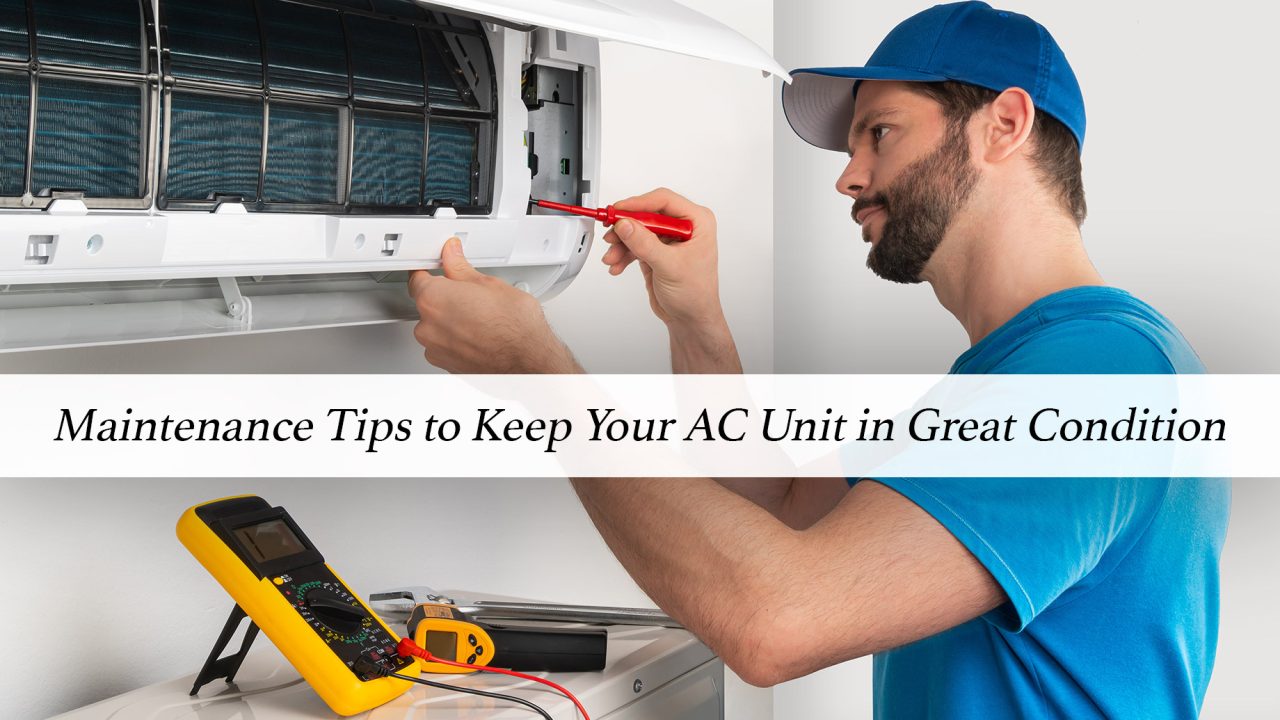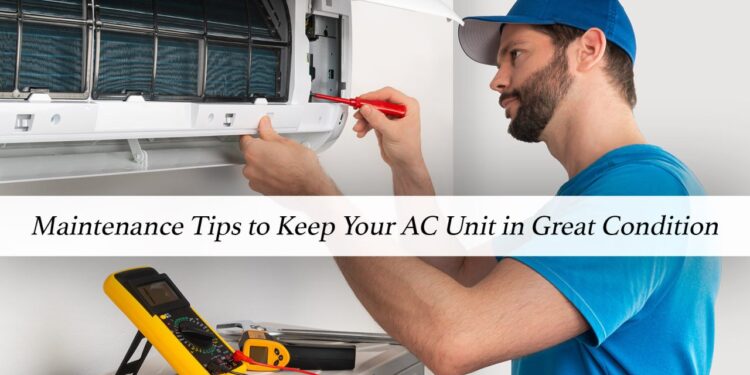Exploring the realm of AC unit maintenance, this introduction delves into the importance of regular upkeep to ensure optimal performance and extend the lifespan of your unit. From discussing the potential repercussions of neglect to highlighting how proper maintenance can lead to energy savings, this overview sets the stage for a comprehensive guide on AC unit maintenance.
Detailing common maintenance tasks and seasonal tips, this guide aims to equip you with the knowledge needed to keep your AC unit running smoothly throughout the year.
 . Here are some tips to help you prepare your AC unit for the changing seasons:
. Here are some tips to help you prepare your AC unit for the changing seasons:

Importance of AC Unit Maintenance
Regular maintenance of your AC unit is crucial for ensuring its efficiency and longevity. Without proper upkeep, your AC unit may face various issues that can impact its performance and lifespan.Potential Consequences of Neglecting AC Unit Maintenance
Neglecting AC unit maintenance can lead to a range of problems, such as reduced cooling capacity, increased energy consumption, higher utility bills, and a shorter lifespan for the unit itself. Dust and debris buildup can clog the filters and coils, leading to inefficient operation and potential breakdowns.How Proper Maintenance Can Help in Reducing Energy Consumption and Costs
By regularly cleaning and servicing your AC unit, you can ensure that it operates at peak efficiency. This not only helps in reducing energy consumption but also lowers your overall cooling costs. Simple tasks like replacing filters, cleaning coils, and checking refrigerant levels can go a long way in maintaining the optimal performance of your AC unit.Common AC Unit Maintenance Tasks
Regular maintenance of your AC unit is essential to ensure optimal performance and longevity. By performing common maintenance tasks, you can keep your unit running efficiently and prevent costly repairs. Let's explore some of the key maintenance tasks you should prioritize.Cleaning or Replacing Filters
One of the most important maintenance tasks for your AC unit is cleaning or replacing the filters regularly. Dirty filters can restrict airflow, reducing the unit's efficiency and causing it to work harder. This can lead to increased energy consumption and even system breakdowns. By cleaning or replacing filters as recommended by the manufacturer, you can ensure proper airflow and indoor air quality.Checking and Cleaning the Evaporator and Condenser Coils
The evaporator and condenser coils in your AC unit play a crucial role in the cooling process. Over time, these coils can accumulate dirt and debris, reducing their ability to transfer heat effectively. Regularly checking and cleaning the coils can help maintain optimal heat transfer, improve energy efficiency, and prevent system malfunctions. A professional HVAC technician can perform a thorough cleaning of these coils during routine maintenance visits.Inspecting and Cleaning the Air Ducts
The air ducts in your home distribute cooled air from your AC unit throughout the space. Over time, dust, debris, and mold can accumulate in the ducts, impacting indoor air quality and system efficiency. Regular inspections and cleanings of the air ducts can help prevent these issues and ensure that your AC unit operates at peak performance. Consider hiring a professional duct cleaning service to remove any buildup and improve air circulation.Seasonal Maintenance Tips
Proper seasonal maintenance is essential to keep your AC unit running efficiently throughout the yearPreparing for Summer
- Clean or replace air filters to ensure proper airflow.
- Check and clean the outdoor unit to remove any debris or obstructions.
- Inspect the ductwork for leaks and seal any gaps to improve efficiency.
- Test the thermostat to make sure it is functioning correctly.
Preparing for Winter
- Cover the outdoor unit to protect it from harsh weather conditions.
- Check the insulation around the unit and repair any damaged areas.
- Inspect the indoor unit for any leaks or blockages in the drainage system.
- Consider scheduling a professional maintenance check before the start of the season.
Crucial Maintenance Tasks Before Each Season Change
- Inspect the refrigerant levels and top off if needed.
- Clean the evaporator and condenser coils to ensure optimal performance.
- Check the fan blades for any damage and replace if necessary.
- Monitor the overall performance of the unit and address any issues promptly.
DIY vs. Professional Maintenance
When it comes to AC unit maintenance, you may be wondering whether to tackle the tasks yourself or hire a professional. Let's compare the benefits of both options and discuss when it's best to DIY and when to seek professional help.Benefits of DIY AC Unit Maintenance
- Cost-effective: Performing maintenance tasks yourself can save money on service fees.
- Convenience: You can schedule maintenance at your own convenience without waiting for a professional.
- Learning experience: DIY maintenance allows you to learn more about your AC unit and how it works.
Benefits of Hiring a Professional
- Expertise: Professionals have the knowledge and experience to identify and fix issues efficiently.
- Quality service: Hiring a professional ensures that maintenance tasks are done correctly to prolong the lifespan of your AC unit.
- Time-saving: Professionals can quickly diagnose problems and complete maintenance tasks in a timely manner.
When to DIY and When to Call a Professional
- DIY: Simple tasks like changing air filters or cleaning debris from the unit can be done by homeowners.
- Professional: Complex issues such as refrigerant leaks or electrical problems should be handled by trained professionals to avoid further damage.
- Call a professional if you are unsure about how to perform a maintenance task or if you notice any signs of a malfunctioning AC unit.
Choosing a Reputable Professional for AC Unit Maintenance
- Ask for recommendations from friends, family, or neighbors who have had positive experiences with AC maintenance professionals.
- Research online reviews and ratings to ensure the credibility and reliability of the professional you are considering.
- Verify licenses and certifications to guarantee that the professional meets industry standards and regulations.














